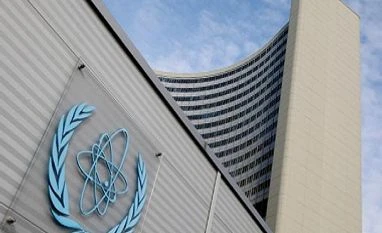Amid speculations that Fethullah Gulen Terrorist Organisation (FETO) in India could cause friction during talks between visiting Turkish President Recep Tayyip Erdogan and Indian Prime Minister Narendra Modi, analysts have suggested that Turkey could use the issue of FETA as a bargaining chip with India, in return for supporting New Delhi's entry into the elite Nuclear Suppliers Group (NSG) group.
According to senior Syrian journalist Dr. Waiel Awwad, Erdogan who now enjoys extended executive powers post the referendum, will call the shots in Turkey as his goal is to fight the Fethullah Gulen Terrorist Organisation (FETO) across the world.
"This is one of the main (aim of) Erdogan, to fight the Fethullah organisation and institutions around the world and he has to show the world that he is the man who pulls the shot. There may be some kind of evidence presented by the Turkish President to the Indian side (on presence of FETO in India). The Turkish President could start using it as a barraging chip to India. He has his own interests in having good relations with India," Dr. Awwad told ANI.
Last year, following a failed military coup, Turkey had urged India to root out the presence of Fethullah Gulen's supporters and sympathisers in India, as Ankara held the U.S. based Turkish preacher Muhammed Fethullah Gulen responsible for the coup.
India had at the time demanded concrete evidence about FETO's presence in the country to act against it.
FETO, a name given to Gulen's movement by the Turkish government, is a trans-national Islamic civic society movement inspired by his teachings. The Turkish Justice and Development Party government, which was once an ally of Gulen, has designated the movement as a terrorist organisation.
Dr. Awwad further said that recently, there has been a change in Turkey's tone over the issue of NSG as strong economic relations with India are in favour of Ankara which is opening up its economy and needs investments in infrastructure.
Also Read
"On NSG, recently we have noted a change of tone of the Turkish government towards this issue. With the economic relationships, with the pragmatic steps they are taking, we may see some kind of change of heart with President Erdogan, who will have a more clear understanding of the Indian position post the visit."
"There will be a discussion on increasing the economic ties because Turkey is opening its market they need investment in infrastructure, which will play a major role (in bilateral negotiations).
Also, Turkey is seeking to boost its tourist industry, which is the main source of its income. Good relations with India will certainly give a fillip to it, he added.
Dr. Awwad further highlighted the pressure from other nations that are favouring India for its entry to the NSG, something that Erdogan won't ignore.
As Turkish President Recep Tayyip Erdogan is set to kick-off his first visit to India starting April 30- his first foreign outing after winning the recent referendum that extended his powers - to discuss terror, trade, nuclear issues. However, all eyes will remain on the issues of India's entry to the NSG group and Ankara's stand on Kashmir.
Though Ankara hasn't categorically opposed New Delhi's admission to the elite NSG- 48-nation grouping that controls the export of technology and materials used to generate nuclear power and make an atomic weapon.
Turkey has been insisting on "criteria-based approach" instead of giving unqualified support to India.
Even though India has been pushing hard for the membership it has failed due to objections from countries like China and New Zealand.
On the Kashmir issue, Turkey has traditionally been seen as supportive of Pakistan.
Also, India hosting Turkey right after hosting Cyprus President Nicos Anastasiades will be a tricky balancing act for New Delhi.
Turkey and Cyprus are engaged in territorial disputes and during his visit, President Anastasiades sought India's help to reunify the northern and southern parts of the country.



)